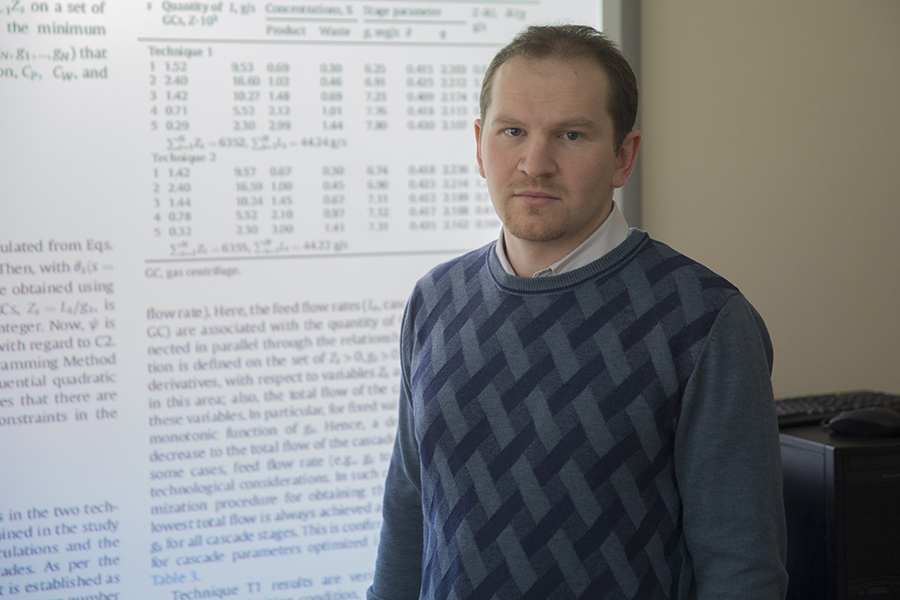Building and operating multistage sorters for enriching uranium used in nuclear power plants requires major investment. MEPhI researchers have calculated performance criteria that could lower construction costs for plants of this kind.
Calculations by researchers from the National Research Nuclear University MEPhI show that the key performance criterion for sorters used in uranium enrichment is the minimum number of separating elements / gas centrifuges in a cascade, not the minimum amount of the fuel passing through the centrifuges.
Experts believe that focusing on this criterion when designing a sorting machine could help drive down costs.
In order to provide a sufficient amount of low enriched uranium fuel for nuclear reactors, it has to be produced on a large scale. In Russia, uranium is enriched in multistage sorters called cascades that consist of thousands of gas centrifuges.
Building and operating plants of this kind is extremely costly, which makes finding ways to improve these processes an important task. It is believed that “limits to the applicability” of the criteria used have to be taken into consideration when determining the optimal parameters for gas centrifuge cascades.
MEPhI researchers compared the specifications of cascades with the optimized parameters related to the minimum number of separating elements and the minimum amount of fuel (uranium hexafluoride) that goes through the centrifuges within a unit of time (aggregate fuel flow within separation units).
It turned out that the parameters /regimes in the operation of the centrifuges were not the same at various cascade stages.
Researchers believe that a cascade with the minimum possible number of separating elements / gas centrifuges is in many respects the least costly option.
Researchers showed that optimizing the aggregate fuel flow parameters within the cascade does not yield results comparable to using a minimum number of centrifuges within a cascade. What this means is that the fuel flow volume should not be used as an optimization criteria.
It can be employed only in a specific setting when all the centrifuges at all stages within the separating cascade operate under the same regime, meaning that a sorter designed this way would cost much more.

“It is worth noting that all the conclusions that were made in this research project apply not only to uranium enrichment for NPPs, but also to the separation of isotopic mixtures of other chemical elements,” one of the researchers, Andrei Smirnov, who is an assistant in MEPhI’s Department of Molecular Physics, said.
He believes that when incorrect criteria are used in specific tasks, “this may result in sub-optimal parameters of the sorter or plant for producing isotopic products.” Taking into consideration the relatively high cost of the isotopes that are produced, a reduction in the efficiency of these machines even by a fraction of a percent could make the resulting product much more expensive.
These findings appeared in an article published by the journal Nuclear Engineering and Technology. To make these calculations, researchers benefited from the latest advances in the theory of cascades for isotopic mixtures and used computation optimization methods for improving the parameters of the cascade machines.





